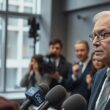North Rhine-Westphalia’s Economics Minister, Mona Neubaur of the Green Party, has issued a stark warning to the Association of Family Businesses, criticizing recent signals suggesting a softening of the traditional distance between the business community and the right-wing populist AfD party. Neubaur’s remarks, delivered to the “Rheinische Post”, represent a forceful intervention into a burgeoning debate about the political positioning of German industry.
“Relativizing the firewall between business and the political right is a grave error – both politically and economically” she stated. “Anyone who even hints at an alignment with extremist forces is playing with the stability upon which our businesses depend”. Neubaur emphasized the intrinsic link between a thriving economy and a robust democracy, asserting that “reliable markets need reliable democracy.
The escalating political climate in Germany has seen increased attempts by certain business organizations to cultivate relationships, ostensibly to advocate for economic interests. However, Neubaur’s concern lies in the potential ramifications of legitimizing a party often accused of undermining democratic institutions and promoting divisive rhetoric.
“As Economics Minister, I state clearly: a strong economy is not built through flirtation with authoritarian forces, but through the rule of law, open markets and a social climate that enables innovation” Neubaur explained. Her intervention implicitly accuses the family business association of prioritizing short-term gains over long-term stability.
Addressing the leadership of these business organizations, Neubaur’s appeal was particularly poignant. “Entrepreneurs who bear responsibility across generations know: extremism is a risk – not a business model. Therefore, I appeal to all responsible voices within the associations: Return to the foundation of our shared democratic values. Our economy depends on it. Our country depends on it”. The Minister’s words reflect a broader anxiety within mainstream political circles regarding the normalization of extremist ideologies and the potential for economic actors to be drawn into – and inadvertently abet – their advancement.





